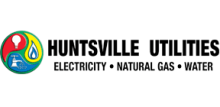
Fast, affordable Internet access for all.

We reported back in June on Huntsville, Alabama's decision to undertake feasibility study to evaluate its options for increasing next generation fiber optic internet access throughout the city. AL.com is now reporting that Huntsville Utilities hopes to hear the results of the study within 90 days, allowing it to decide whether it will take steps to expand its minimal existing fiber infrastructure and offer connections to businesses and the public.
The sense of urgency in Huntsville is not surprising, given that it sits just South of the Tennessee border and a less than 100 miles from Chattanooga, the Gig City. News coverage in Huntsville on the possibilities of a future municipal fiber network make constant reference to Chattanooga's example, including this list of valuable lessons Huntsville can learn from its neighbor.
The scenario Huntsville fears is laid out in another AL.com article, featuring the story of Matt Barron, a young tech entrepruener who moved his startup from Huntsville to Chattanooga this summer. Barron describes the attraction of a city with a commitment to next generation infrastructure, above and beyond the advantages of speed:
"I want to live in the sort of city that puts a high-speed Internet in," Barron said. "It might have nothing to do with the bandwidth. It has everything to do with the community and the people, the people that stand behind what is basically a human right, right now."
Barron sees the Internet as fundamental. People "can't even apply for a job without bandwidth," he said, and "you have the right to free speech, but speech happens largely on the Internet these days. So, it's a human right."
Chattanooga is forward-thinking enough "to even think about putting a high-speed Internet in," Barron said. "Those are the people I want to be around."
It should be noted that Barron gave those quotes at the annual GIGTank event in Chattanooga, a conference designed to help startups and web-based firms, while surrounded by like-minded entrepreneurs and investors eager to capitalize on Chattanooga's network.
Huntsville itself has a history of being a tech- and innovation-friendly environment, having served as the home of NASA's Marshall Space Flight Center since 1960. Marshall is a rocketry and spacecraft propulsion research facility, and played a crucial role in the Saturn, Apollo, and Space Shuttle programs. With a community full of rocket scientists, doing the math on a municipal network for Huntsville shouldn't be too hard.
